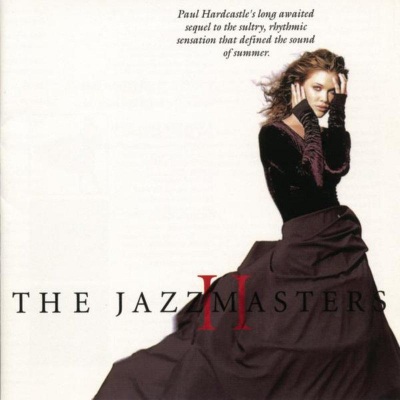
The Jazzmasters II
by Eugene Chadbourne The adjective "timeless" is usually used in praise. The dozen tracks featured here, all of which were arranged, mixed, and produced by Paul Hardcastle, perhaps were not created to inspire praise. Indeed, one would question whether the audience this is intended for would even want to waste their time talking about music at all, pro or con. They would be too busy falling in love on their water skis or ordering cocktails or whatever people who listen to music like this do. Hardcastle's music would automatically find the background of whatever setting it is in. If it is timeless, it is because it is too vapid to evoke a particular era and because it is rhythmically so insipid that the concept of "time" is rendered obsolete, other than whatever moments might be tied up in waiting for it to end. Hardcastle himself has already provided the raves his critics may be too aloof to hand over. This album, for example, is the "long awaited sequel to the sultry, rhythmic sensation that defined the sound of summer." That text is printed right on the front cover. Which summer? Where? Perhaps it was the summer of 1998, a distant epoch when jazz meant the same thing it did in the '20s. To title a project The Jazzmasters when it bears so little relation to jazz music is downright weird, but there are reports of a jazz audience that actually doesn't listen to jazz, but likes the idea -- even jazz radio stations that don't play any, either. These tracks make the artists heard on these stations, such as Chuck Mangione, seem like they are brimming over with the fire of real jazz. A dominant force is a Saturday Night Live saxophone sound filtered through Kenny G., and that is almost too horrible for words. Helen Rogers provides workable vocals, although lyrically she is not given a whole lot to work with: "Shine on me/So much in love with you" or "Just show me what it's all about/I'm so much in love with you" are more than just examples of lyrics that look bad on paper -- they also sound bad. The song titles do give the disgruntled music critic plenty to work with, though. "Do You Remember" hearing music this bad? Yes, and it is no "Wonderland." "Walkin' to Freedom" is a great idea, even limping or crawling, as long as it creates a distance from Hardcastle. "Summer Rain" would be great if it drowned out the CD, the "Smooth Groove" is neither, "Just Can't Understand" the appeal of this to so many folks, "Time to Move On." "Can You Hear Me?" Yes, unfortunately.
